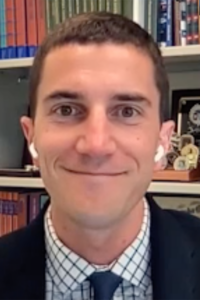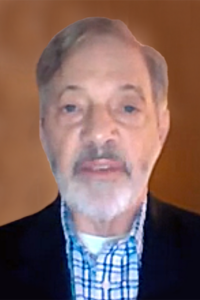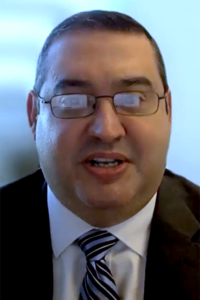
Despite the capabilities of extracorporeal life support (ECLS) to act as a life-prolonging intervention for patients awaiting organ recovery and/or additional curative medical therapies, it can often create moral dilemmas and ethical challenges for the health care team.
During the CHEST 2021 session Ethical Challenges in the Management of Patients on Extracorporeal Life Support, a panel of critical care professionals discussed the challenging clinical reasoning process and ethical considerations for the initiation, continuation, and cessation of ECLS.
“ECLS is a supportive therapy that can be instituted as an emergent, urgent, or even elective procedure for cardiopulmonary support. But it’s important to remember that, ultimately, ECLS is a bridge function, not a destination device,” said John Hunninghake, MD, a pulmonary and critical care medicine specialist at Brooke Army Medical Center in San Antonio, TX.
Continual advances in ECLS capabilities, he said, challenge current ethical paradigms and raise a number of complicated questions.
“Is ECLS a bridge to recovery or inevitable death? Is it lifesaving or life-prolonging and how does it differ from other life-sustaining measures?” Dr. Hunninghake queried. “And what is the moral dilemma that occurs when curative therapies are not available or offered?”

Ultimately, he said, these questions generally hinge on achieving a balance between patient autonomy and physician attitudes and expertise.
“It is generally accepted that patient autonomy cannot dictate the use of each and every medical or surgical intervention that might offer minimal prolongation of a patient’s life at great cost in human and material resources,” Dr. Hunninghake said. “So what is the process to make this decision that respects the patient’s values and preferences, while incorporating the treatment team’s medical recommendations? Like so many things, it comes down to communication—effective communication that uses intentional language in a protocolized approach to shared decision-making to help navigate these difficult discussions.”
From a purely clinical standpoint, often the most challenging questions and most difficult discussions arise when the medical team determines that the patient’s outcome is no longer in question and further care is futile, according to Michael Petty, PhD, RN, APRN, Cardiothoracic Clinical Nurse Specialist at the University of Minnesota Medical Center.
“When we look at perspectives on futility, we recognize that there are multiple people weighing in on this particular conversation, and the definitions applied by people looking at the same situation from different perspectives may lead them to come up with different solutions,” Petty said. “Clear communication between the patient, the family, and the health care team is essential to be sure that everybody is on the same page throughout the treatment process and that everyone has a clear understanding of the goals of treatment, the limitations of ECLS, and the expected time frame for support.”

For the medical team, referring to organizational policies that outline strategies for addressing different perspectives related to treatment futility, including ethics committee consultations, is important in this process, said Robert Walter, MD, PhD, FCCP, Program Director, Pulmonary/Critical Care Fellowship, and Chair of the Ethics Committee at Brooke Army Medical Center.
“There are a number of ways in which the ethics committee’s consultative service may be able to assist, such as providing clarification and better definition when there’s moral uncertainty or conflicting values and attempting to more clearly organize the case around the central ethical concerns and underlying moral assumptions,” Dr. Walter said.
Importantly, he emphasized that the role of the ethics committee is not to second-guess or dictate care decisions but to be a resource for the medical team and provide assistance in navigating ethical issues and applying a shared decision-making model to establish goals of care for patients supported by ECLS.
“Often feared to be the ‘ethics police,’ the long arm of the administration, or part of the process for quality assurance, the ethics committee is, in reality, none of those things; nor is it the ‘fix-it’ service that’s consulted when there’s no clear way forward,” Dr. Walter said. “The primary goal is to improve the provision of health care and outcomes through the identification, analysis, and resolution of ethical issues in the hope of establishing mutually acceptable treatment recommendations.”
ACCESS SESSIONS ON DEMAND
Registered CHEST 2021 attendees have continued access to 200+ educational sessions until October 1, 2022. Watch sessions on your own schedule and earn up to 50 CME credits/MOC points.
Don’t forget to claim your credit! The deadline is December 15, 2022, at 11:59 pm CT.





